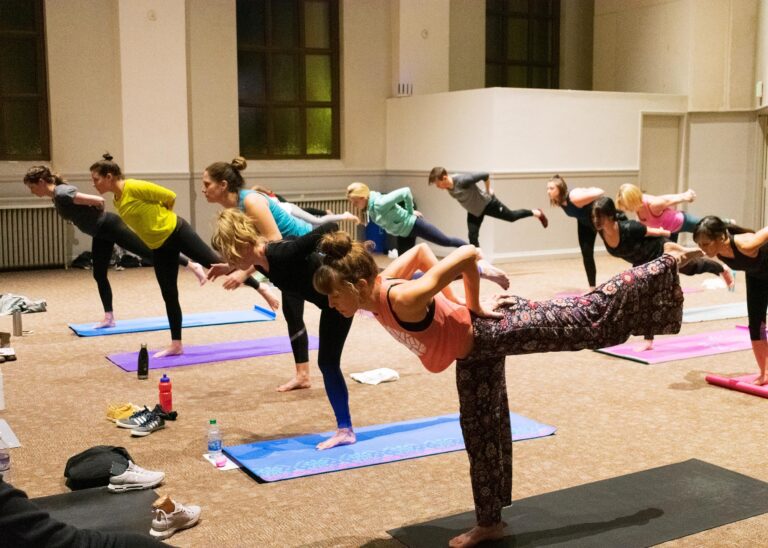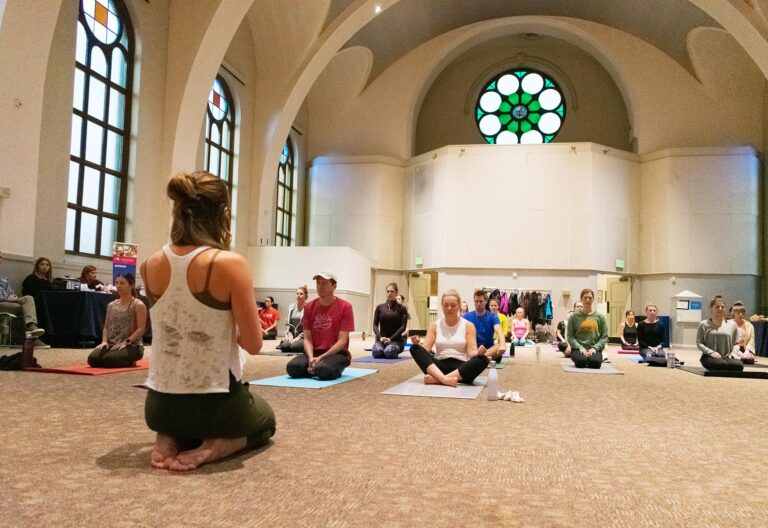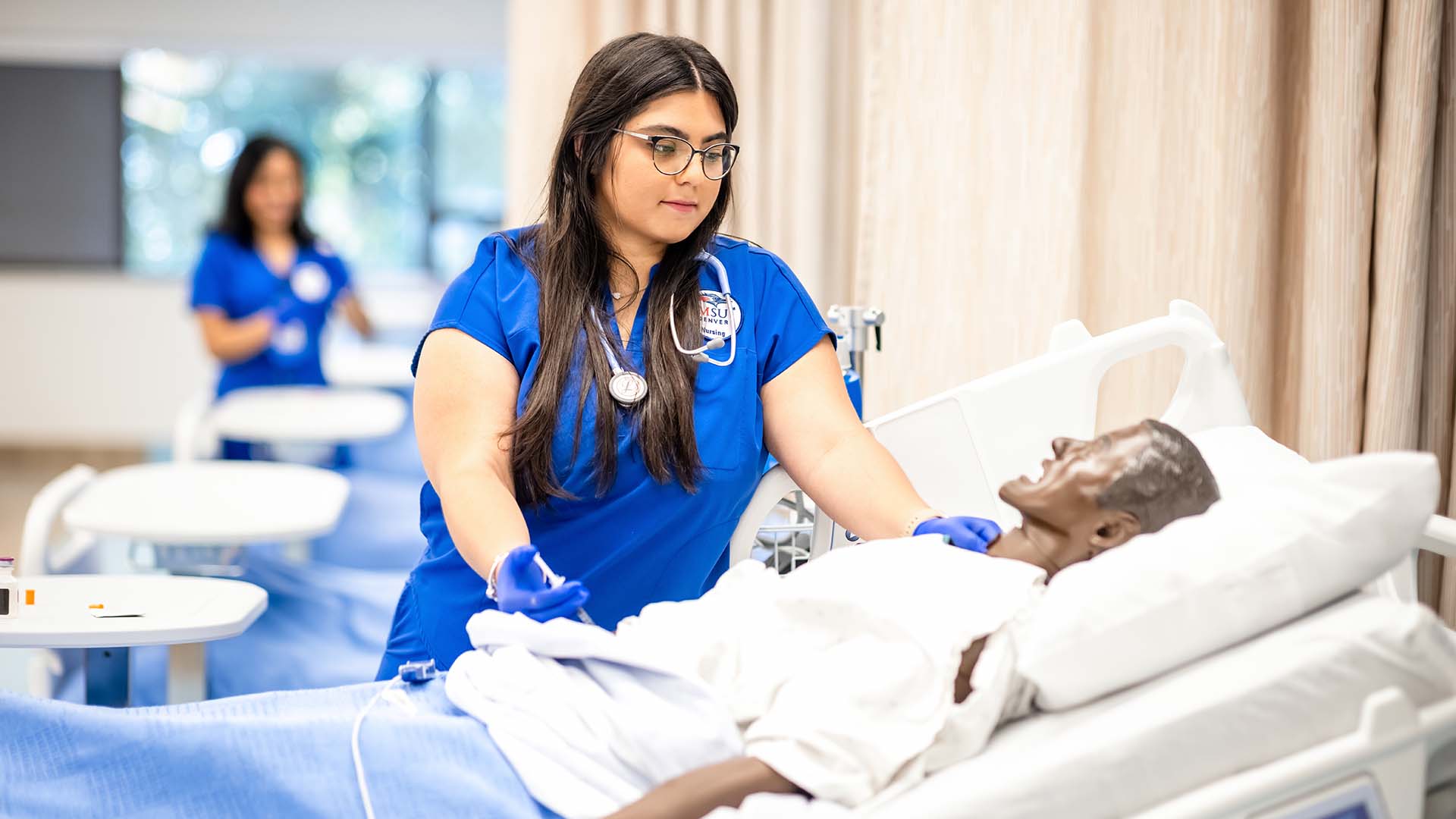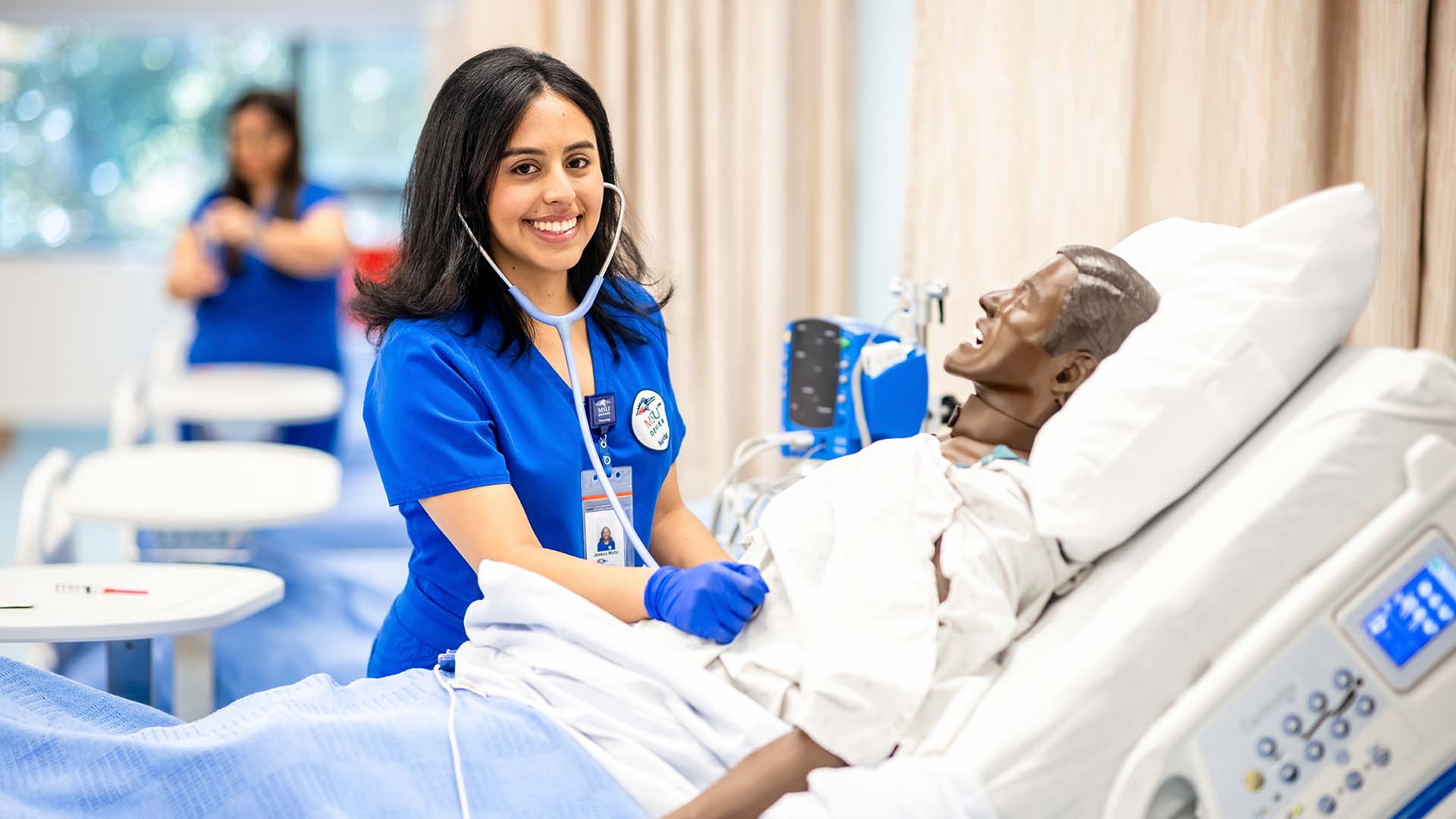Can yoga help with depression?
Statisticians and psychology experts analyze the promising link between the popular practice and mental health.

The U.S. — and the world — was already experiencing a mental-health crisis when the pandemic began.
According to a 2020 study from the Substance Abuse and Mental Health Services Administration, 21 million Americans had suffered a depressive episode. By 2022, the pandemic had triggered a 25% increase in anxiety and depression globally, according to the World Health Organization’s research. With so many people trying to manage these debilitating conditions, there’s value in researching all types of treatment.
The departments of Psychology and Math and Statistics at Metropolitan State University of Denver recently combined efforts to determine if one unconventional treatment for depression had any validity: yoga. Together, the team conducted a meta-analysis of 152 studies on the topic, concluding that yoga does indeed offer potential help to people suffering from depression.
RELATED VIDEO: Trauma-informed yoga takes root in Denver
A meta-analysis is a “study of studies,” which means it is an effective measure of all the relevant research available on a topic, leading to trustworthy results. Lead authors of the meta-analysis were Michael Rhoads, Ph.D., senior lecturer of Psychology, and Nels Grevstad, Ph.D., professor of Statistics.

“The idea was to search for all published academic studies on yoga and depression and then run a sophisticated statistical analysis on the data set to develop a summary,” explained Grevstad.
Rhoads invited 20 of his undergrad Psychology students to help with the analysis. “This is a unique opportunity for undergrads,” he said. “It allowed them to be part of the process to analyze scientific data. They were excited because getting your name on a published study as an undergrad isn’t all that common.”
Madi Barber, a senior Psychology major, was one of them. “I first had a class with Dr. Rhoads in the fall of 2020, online,” she said. “I was looking to get involved in research, and he told me he was looking for research assistants for coding. In the spring of 2021, I got to perform coding for articles on anxiety.”
“Coding,” in research terms, is assigning a descriptive label or numerical value to some aspect of the study you are analyzing to help identify the proper content to study. In this case, coding included identifying the type of yoga, whether relaxation was employed, the number of hours of yoga practiced and the levels of depression before and after yoga. After a year of coding, Rhoads, Barber and the other students had determined there were more than 150 studies that matched their qualifications for analysis.

The results showed that yoga helps treat depression. “It has a spiritual component and includes aspects of meditation, relaxation, mindfulness and breath work, all of which might be beneficial to psychological disorders,” explained Rhoads. “It received an overall score of .54, which on a scale puts it in the moderate-to-medium effective size, so it’s a viable intervention for depression.”
Rhoads said that while using yoga as part of a treatment plan for depression is familiar to therapists and doctors, the new meta-analysis might help bring greater awareness of its benefits to the general population. “It can be part of a holistic approach that includes lifestyle changes, therapy, exercise and diet,” he said.
Trusting the undergrad students to take such a big role in the research was something Rhoads felt confident in doing. “They had all taken a Statistics and Research class with me, and I observed their high level of work,” he said. “They enjoyed that and learned a good deal, so they were excited to work on this project. Being on a publication before graduation is good for their résumés.”
Barber expressed her enthusiasm for what she learned, plus the fact it could help her get admitted to grad school. “This was a ton of work, and there was a lot of anxiety wondering if we’d get published,” she said. “But when I learned we did, I did a happy dance. It was such a relief to know all that work wasn’t in vain.”
The students weren’t the only part of the team that hadn’t conducted a meta-analysis. This was also Grevstad’s first go at it. “I had to do a lot of reading on meta-analysis methods,” he said. “Then, I had to clean up some of the data and use software to write our own code. It probably took a year on my end to get it finished.”
All told, the team combined their talents for extraordinary results. Barber said she is better-equipped after her role on the team. “I learned that a teaching style like Dr. Rhoads’ is a good fit for me as I consider grad school and an eventual advisor,” she said. “It was a huge honor to be part of this and to learn from Dr. Rhoads.”





